 Your new post is loading...
 Your new post is loading...

|
Scooped by
Sakis Koukouvis
August 21, 2012 5:21 PM
|
These three things—a biological hurricane, computational social science, and the rediscovery of experimentation—are going to change the social sciences in the 21st century. With that change will come, in my judgment, a variety of discoveries and opportunities that offer tremendous prospect for improving the human condition.
It's one thing to say that the way in which we study our object of inquiry, namely humans, is undergoing profound change, as I think it is. The social sciences are indeed changing. But the next question is: is the object of inquiry also undergoing profound change? It's not just how we study it that's changing, which it is. The question is: is the thing itself, our humanity, also changing?

|
Scooped by
Sakis Koukouvis
June 14, 2012 6:58 PM
|
Living Data contributes to the 2012 Antarctic Treaty meeting in Hobart, 11-17 June. Words are by Lisa Roberts, Sue Anderson and Steve Nicol. Thanks to Tony Press (CCAMLR), Andrew Constable and Graham Hosie (AAD).

|
Scooped by
Sakis Koukouvis
May 6, 2012 2:36 PM
|
Brain networks may avoid traffic jams at their busiest intersections by communicating on different frequencies, researchers at Washington University School of Medicine in St. Louis, the University Medical Center at Hamburg-Eppendorf and the University of Tübingen have learned.
Articles about NEUROSCIENCE: http://www.scoop.it/t/science-news?tag=neuroscience

|
Scooped by
Sakis Koukouvis
April 27, 2012 4:53 PM
|
Researchers at the University of Cambridge have developed a simple mathematical model of the brain which provides a remarkably complete statistical account of the complex web of connections between various brain regions.
Articles about NEUROSCIENCE: http://www.scoop.it/t/science-news?tag=neuroscience

|
Scooped by
Sakis Koukouvis
April 23, 2012 5:20 PM
|
Having attractive friends will make you more popular on Facebook, especially if you are a woman, according to a new study that takes Charles Darwin into the domain of cyber networking.
Articles about FACEBOOK: http://www.scoop.it/t/science-news?tag=facebook

|
Scooped by
Sakis Koukouvis
April 2, 2012 12:38 PM
|
Researchers at Carlos III University of Madrid and the University of Zaragoza theoretically predict, in a scientific study, that contact networks have no influence on cooperation among individuals. These researchers have mathematically examined what occurs when groups of people who behave as the experiments say have to decide whether or not to cooperate, and how the existence of cooperation, globally or in the group, depends on the structure of the interactions.

|
Scooped by
Sakis Koukouvis
March 26, 2012 2:57 PM
|
Queen's University professor Selim Akl has provided additional proof to the theory that nature computes.

|
Scooped by
Sakis Koukouvis
February 22, 2012 12:59 PM
|
Complexity scientists have made great strides in understanding the behaviour of single networks.

|
Scooped by
Sakis Koukouvis
February 15, 2012 7:36 AM
|
What is a Neural Network?

|
Scooped by
Sakis Koukouvis
February 9, 2012 3:14 PM
|
Researchers from Tel Aviv University, in collaboration with the Kiel Institute of World Economy in Germany, have developed a market "seismograph" — a new methodology that measures the interconnections between stock markets across the globe. It has the potential to serve as an early warning system and provide measures to manage and mitigate the spread of financial crisis.

|
Scooped by
Sakis Koukouvis
January 29, 2012 2:26 PM
|
Thinking of memory as a network is obvious for two reasons. First, it’s the image we all hold in our minds of the brain as a ball of neurons networked together. Second, the Internet has become a popular model for the brain, particularly as social networking has begun to transform the business of marketing.

|
Scooped by
Sakis Koukouvis
January 23, 2012 5:43 PM
|
(PhysOrg.com) -- A cognitive sciences research duo out of Università di Padova, in Italy, have succeeded in building an artificial intelligence network that has through repetition, learned to identify relative group sizes, without counting.

|
Scooped by
Sakis Koukouvis
January 11, 2012 3:01 AM
|
People harbor more than 100 trillion microbes. These microbes live in various habitats on and within the human anatomy; the gut houses the densest population of all, containing hundreds of bacterial species.
|

|
Rescooped by
Sakis Koukouvis
from BIODIVERSITY IS LIFE –
August 21, 2012 2:19 AM
|
Fritjof Capra, in his book ‘The Hidden Connections’ applies aspects of complexity theory, particularly the analysis of networks, to global capitalism and the state of the world; and eloquently argues the case that social systems such as organisations and networks are not just like living systems – they are living systems. The concept and theory of living systems (technically known as autopoiesis) was introduced in 1972 by Chilean biologists Humberto Maturana and Francisco Varela. This is a complete version of a ‘long-blog’ written by Al Kennedy on behalf of ‘The Nature of Business’ blog and BCI: Biomimicry for Creative Innovation www.businessinspired...
Via ddrrnt, Spaceweaver, David Hodgson, pdjmoo

|
Scooped by
Sakis Koukouvis
May 25, 2012 3:21 PM
|

|
Scooped by
Sakis Koukouvis
May 2, 2012 10:49 AM
|
Mobile technology is opening new channels for remotely monitoring family members and others who need to be tracked.

|
Scooped by
Sakis Koukouvis
April 24, 2012 10:11 AM
|
Himelboim found out that as the discussion group became larger, just like in offline life, they also became more hierarchical. People exhibit what’s called a preferential attachment toward those with many connections, which suggests that having many connections makes it easier to make more connections. For those having fewer connections, making new connections will be more difficult. Hence, the internet seems to foster inequality.

|
Scooped by
Sakis Koukouvis
April 19, 2012 5:33 PM
|
Networks governing processes in nature and society are becoming increasingly amenable to modeling, forecast and control.

|
Scooped by
Sakis Koukouvis
April 2, 2012 12:21 PM
|
"This model is inspired by the brain," she says. "It is a mathematical formulation of the brain's neural networks with their adaptive abilities." The authors show that when the model is installed in an environment offering constant sensory stimuli like the real world, and when all stimulus-response pairs are considered over the machine's lifetime, the Super Turing model yields an exponentially greater repertoire of behaviors than the classical computer or Turing model. They demonstrate that the Super-Turing model is superior for human-like tasks and learning. Articles about NEUROSCIENCE: http://www.scoop.it/t/science-news?page=7&tag=neuroscience

|
Scooped by
Sakis Koukouvis
March 26, 2012 1:24 PM
|
A University of California, Riverside professor and several other researchers have developed a model that uses data from Twitter to help predict the traded volume and value of a stock the following day. Articles about ECONOMY http://www.scoop.it/t/science-news?tag=economy

|
Scooped by
Sakis Koukouvis
February 16, 2012 11:09 AM
|
Computer scientists at Wake Forest University are using a genetically-inspired algorithm that proactively discovers more secure computer network configurations...
"In Reinventing Discovery, Michael Nielsen argues that we are living at the dawn of the most dramatic change in science in more than 300 years. This change is being driven by powerful new cognitive tools, enabled by the internet, which are greatly accelerating scientific discovery. There are many books about how the internet is changing business or the workplace or government. But this is the first book about something much more fundamental: how the internet is transforming the nature of our collective intelligence and how we understand the world."
Via Howard Rheingold

|
Scooped by
Sakis Koukouvis
February 3, 2012 3:22 AM
|
Human interactions follow the network pattern of life itself...

|
Scooped by
Sakis Koukouvis
January 25, 2012 5:45 PM
|
Ancient humans may not have had the luxury of updating their Facebook status, but social networks were nevertheless an essential component of their lives, a new study suggests.

|
Scooped by
Sakis Koukouvis
January 11, 2012 12:48 PM
|
LAS VEGAS — Automakers and government agencies are teaming up to lay the foundations for a future in which smart vehicles can communicate with one another to improve road safety.
|

 Your new post is loading...
Your new post is loading...
 Your new post is loading...
Your new post is loading...





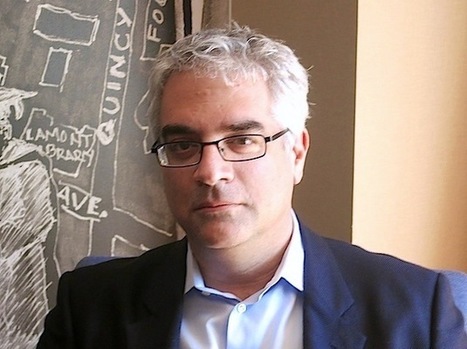

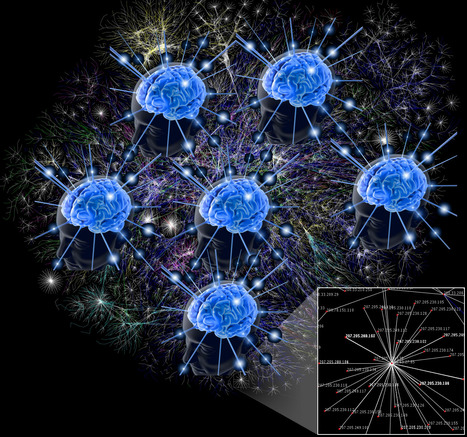
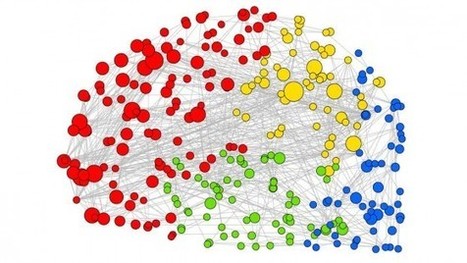


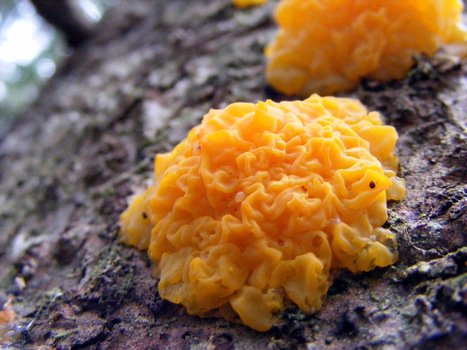

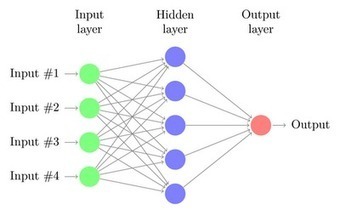




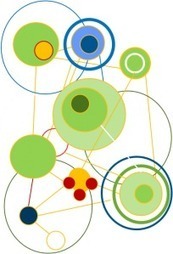
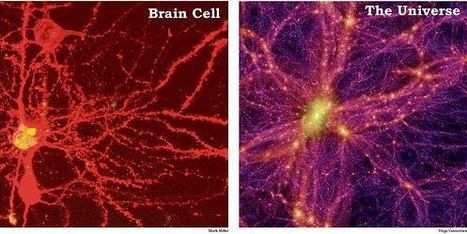




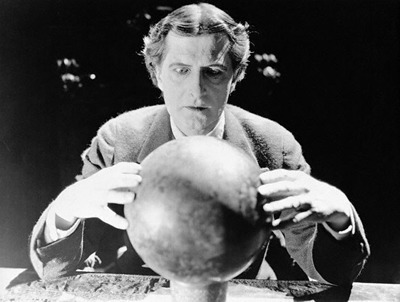


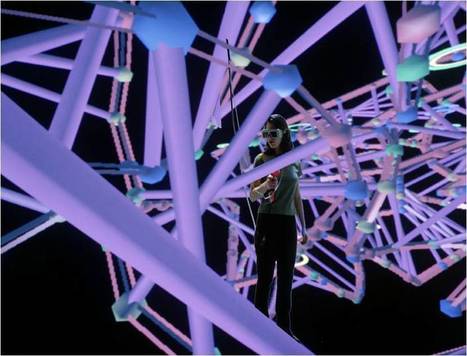
![[VIDEO] - New study of hunter-gatherers suggests social networks sparked evolution of cooperation | Science News | Scoop.it](https://img.scoop.it/aLJdMd1vF4y67HYGK-RT2zl72eJkfbmt4t8yenImKBVvK0kTmF0xjctABnaLJIm9)





